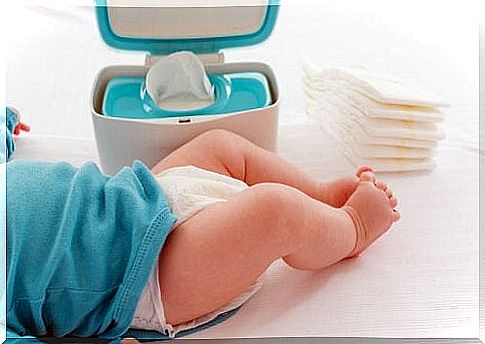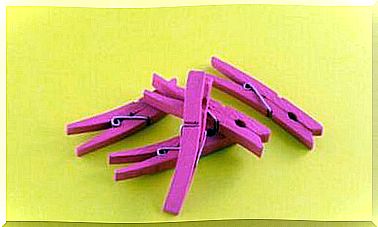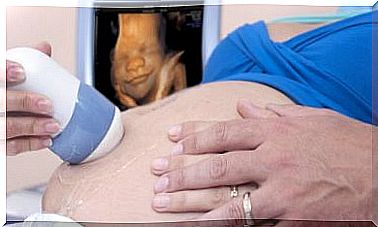Meconium At Birth – Being Parents

Meconium is the baby’s first bowel movement soon after birth. It usually occurs within 48 hours.
It should be noted that it is composed of epithelial cells from the intestines, water, lanugo, amniotic fluid and bile. In short, they are sticky, dark green stools.
Meconium and its expulsion in the amniotic fluid
In the mother’s womb, the baby sucks in amniotic fluid. All components dissolved in the substance s accumulate in the intestines of the fetus and form meconium.
After birth, it is excreted through the anus and does not cause any problems. On the contrary, it presupposes the expulsion of the first waste that the body does not need.
However, in fetal distress, before or during childbirth, the baby may have intestinal contractions which will relax his anal sphincter and allow the expulsion of meconium into the amniotic fluid.
When the delivery does not take place on time and the meconium reaches the fetal lungs, then a medical complication occurs. This is called meconium aspiration syndrome.

Meconium aspiration syndrome
Meconium aspiration syndrome (SAM) is an acute difficulty in breathing that occurs when a baby sucks in meconium dissolved in amniotic fluid and reaches the lungs. The amount and consistency of meconium sucked in will affect the baby to a greater or lesser extent.
Some of the most common causes are:
- Pre-eclampsia.
- Smoking.
- Placental insufficiency.
- Delay in the growth of the fetus.
- Umbilical cord prolapse.
- Respiratory diseases of the mother.
- Cardiovascular disorders in women.
- Chorio-amnionitis (infection of the amniotic fluid).
- Lack of amniotic fluid (Oligohydramnios).
- Premature placental abruption.
- The prolonged permanence of the fetus in the womb of its mother (birth after term).
Preventing meconium aspiration syndrome can be difficult. Indeed, the only way to achieve this is to avoid harmful habits (such as smoking and alcoholism) and maintain rigorous medical control.
In order to reduce the effects of this emergency, treatment should begin as soon as you give birth. This is the only way to avoid the complications that lead to pulmonary hypertension or brain damage in children.
Don’t forget the time
The premature release of meconium also involves a complication. This situation occurs when the fetus is still inside the placenta and the meconium is expelled. In addition, evacuation times after birth should be closely monitored.
It has been proven that the delay in this expulsion is linked to pathologies such as cystic fibrosis or meconium ileus (perforation of the intestines). Therefore, if the baby does not defecate after the normal 48 hours, you should see a pediatrician as soon as possible.

How to clean meconium?
Cleaning the meconium requires a little more care than the rest of the stool. Since it has a sticky consistency, it adheres strongly to the skin, which makes cleaning difficult. However, there is no reason to lose your temper.
The process of removing it must be delicate. The steps to follow are as follows:
- Gently remove the diaper. To prevent the baby from being stained on the back, hold him by the ankles and lift him slightly to slide the dirty diaper out of this area.
- Once the diaper is removed, it is advisable to wash the baby with lukewarm water, from the waist down to the bottom. This way you can remove a large part of the stool without rubbing the baby’s skin too much.
- Dry with damp wipes. By tapping. It is not necessary to rub too much as you may irritate the skin.
- Remember that cleaning the genitals should be done from front to back. Never the opposite. This is because you could cause an infection.
- If some meconium fragments do not come off completely, leave them. It is much less damaging to the skin than the chafing you might cause by insisting on cleaning the area.
Meconium is unpleasant to the naked eye. It is also difficult to clean. But its presence will give you the confidence that your baby’s intestinal system is functioning well.









